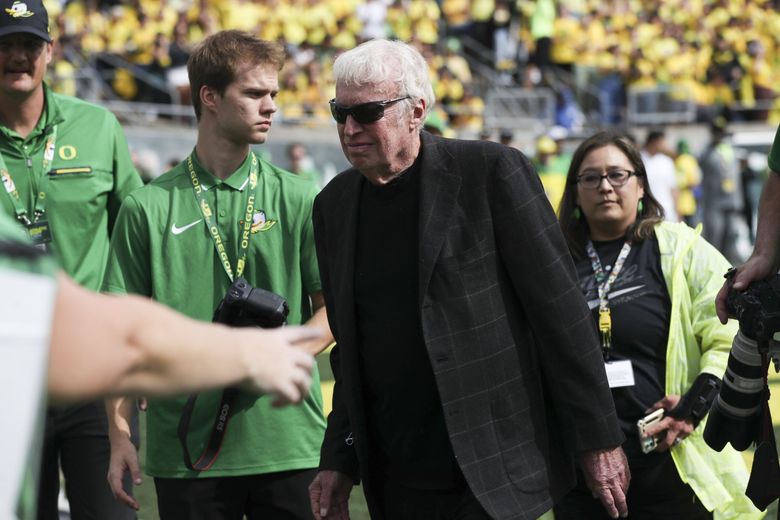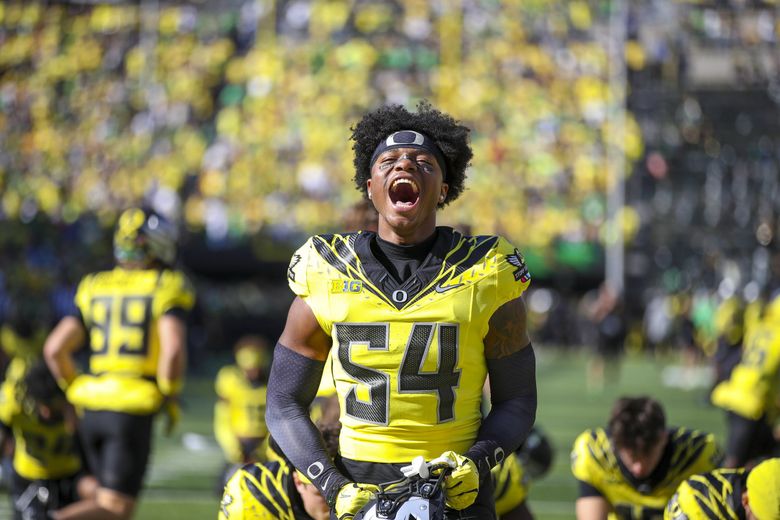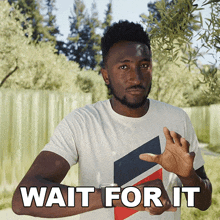How House v. NCAA settlement could give Oregon an advantage in NIL deals

The settlement document in the House v. NCAA lawsuit spans 136 pages. The section on definitions alone features 48 terms that help shape the groundbreaking agreement to pay billions to former collegiate athletes, share revenue with current (and future) players and create an oversight body to monitor third-party NIL deals.
All in all, the settlement, if approved by U.S. District Judge Claudia Wilken in the next few weeks, will take effect July 1 and transform college sports like nothing before it.
Six words, located in section 1, subsection e, have our attention: “Other than a publicly traded corporation.”
The section in question details the type of NIL (name, image and likeness) agreements that will be subject to fair-market-value examination by a newly formed oversight clearinghouse.
Expected to be run by Deloitte, the global auditing firm, the clearinghouse will police NIL transactions between athletes and businesses — transactions that come on top of the $20.5 million (maximum) that each school is permitted to share with athletes annually.
The aim: Eliminate the pay-for-play deals that currently control the flow of talent in both high school recruiting and the transfer portal.
In theory, the clearinghouse will be empowered to enforce so-called “true NIL,” by which athletes are compensated by businesses for legitimate endorsement and promotional activities.
But not all businesses will be subject to oversight by the clearinghouse.
Other than a publicly traded corporation.
Put another way: It’s good to be Oregon.
For decades, the Ducks have benefited from their association with Nike and relationship with the company’s founder, Phil Knight, an Oregon alumnus.
Nike founder Phil Knight walks on the field before an NCAA football game between Colorado and Oregon, Sept. 23, 2023, in Eugene, Ore. (Amanda Loman / AP)
Nike founder Phil Knight walks on the field before an NCAA football game between Colorado and Oregon, Sept. 23, 2023, in Eugene, Ore. (Amanda Loman / AP)
Nike is a publicly traded corporation with $92 billion in market capitalization, meaning NIL deals between the company and college athletes — at Oregon or elsewhere — are exempt from fair-market-value assessments by the new clearinghouse.
“Does Oregon get some benefit? Yes,” said Gabe Feldman, director of the Tulane Sports Law Program and consultant for the Knight Commission on Intercollegiate Athletics (named for the John S. and James L. Knight Foundation, not Phil Knight).
“Is it a massive advantage? No.”
Like so much else in the settlement, the degree to which Oregon — or any school with ties to a publicly traded company — will benefit from the NIL exemption is unclear.
But this much is certain: While the back-damages and revenue-sharing portions of the settlement have received an outsized percentage of the attention from the media and college sports administrators, the NIL oversight component is critical to cleaning up the player-procurement process.
To this point, the NIL marketplace has been dominated by booster-run collectives that offer payments to athletes as recruiting inducements.
The ACC, Big Ten, Big 12 and SEC, which are named defendants in the House lawsuit (along with the NCAA and the Pac-12), want to add enforcement to the NIL market and create a pay-for-work, not pay-for-play, environment.
There are two primary components to the NIL clearinghouse, according to Feldman:
— All NIL deals of at least $600 must be reported.
— Only deals with boosters or “associated entities” are subject to the fair-market-value review by the clearinghouse. (Each school is submitting a list of associated entities and individuals.)
In theory, Nike could offer Oregon’s starting quarterback $1 million for a single public appearance, with no threat of oversight or enforcement. (The list of Nike schools includes Ohio State, Alabama and Texas.)
“(The settlement) seemingly would exempt Nike,” said Sam Ehrlich, an assistant professor of legal studies at Boise State and former attorney specializing in antitrust and sports employment law. “And that would be an advantage to Oregon. But they do have shareholders to report to.”
And therein lies one of the two possible backstops to prevent publicly traded companies from conferring a massive advantage to specific schools.
“Nike is not considered a booster (under the terms of the settlement) because it’s a publicly traded company,” Feldman said, “and because it’s a publicly traded company, they have to answer to shareholders.
“Why would a company allow the owner to benefit his or her alma mater if it’s not going to help the company? You’re talking about federal laws.”
Attorneys for the House plaintiffs and the defendants “want a pro system,” Feldman added, “where you can’t have endorsement deals designed to circumvent the salary cap.”
Oregon isn’t the only school with close ties to a publicly traded company.
Michigan State donor Mat Ishbia is the CEO of United Wholesale Mortgage (market cap: $6.5 billion).
SMU donor Gerald Ford is the Chairman Emeritus of Hilltop Holdings (market cap: $2 billion).
Miami benefactor John Ruiz runs LifeWallet ($15.4 million), although the business is struggling financially.
Said a source familiar with the specifics of the clearinghouse’s marching orders: “There will be a lot of focus on companies like Nike and Adidas.”
Which brings us to the second backstop to publicly traded companies circumventing the NIL clearinghouse.
“Will Deloitte go beyond the terms of the settlement?” Ehrlich said.
That’s one of many unknowns: the extent to which the clearinghouse expands its authority beyond the terms laid out in the settlement.
Upon detecting a deal that appears excessive, the clearinghouse potentially could redefine the publicly traded company as an associated entity, thereby making its contracts with athletes subject to fair-market-value analysis.
(Also possible: The legality of the clearinghouse will be challenged immediately, on the grounds that fair market value cannot be defined by an enforcement entity. “The settlement is not a sustainable system,” Feldman said. “It’s an antitrust settlement not intended to be comprehensive.”)
Let’s examine the situation in hypothetical terms, with Nike offering $1 million to Oregon’s starting tailback in exchange for a single public appearance at the Pioneer Place outlet in downtown Portland.
It’s a ridiculous amount, of course. And the transaction would have to be recorded by Nike and therefore subject to the company’s internal auditing.
Also, the deal must be reported to the NIL clearinghouse because it exceeds $600. It would undoubtedly raise alarms, possibly leading to the determination that Nike should be considered an “associated entity.”
“The clearinghouse will apply pressure if the company is bypassing,” the source said.
In practical terms, the advantage conferred to Oregon by its relationship with Nike lies in the quantity of deals that a company with $92 billion in market capitalization could provide.
Instead of attempting to pay the tailback $1 million for a single appearance, Nike could offer 10 players legitimate endorsement deals, each worth $250,000 and each within a fair value range for the services rendered.
The deals won’t raise alarms inside Nike or with the clearinghouse, but they will create vital cap space for the Ducks.
Within the power conferences, schools are expected to devote about $15 million to the football roster, with the remaining $5.5 million split among basketball and the Olympic sports. The third-party NIL deals offer a means of exceeding the cap.
Oregon linebacker Jerry Mixon cheers before an NCAA football game in Eugene, Ore. (Amanda Loman / AP, 2024)
Oregon linebacker Jerry Mixon cheers before an NCAA football game in Eugene, Ore. (Amanda Loman / AP, 2024)
If Nike is providing satisfactory NIL money to 10 players, there’s more revenue-sharing cash available for the Ducks. They could offer a sweeter deal to the coveted quarterback, or edge rusher.
Essentially, Nike would have boosted Oregon’s cap space by 16.7 percent — the $15 million (approximate) for revenue sharing plus an additional $2.5 million in true NIL.
But here’s the hook: That option is open to any school in any conference, so long as it partners with a business willing to underwrite the football program’s cap space.
Amazon could do the same for Washington.
Google could do the same for Stanford.
The third-party NIL transactions — as defined by the House settlement and enforced by the Deloitte clearinghouse — are largely partly rooted in willpower.
In the company’s ties to the school and desire to foster on-field success while building its brand.
There are dozens of possible partnerships for FBS programs across the country. Few of them seem as beneficial as Oregon’s relationship with Nike — a decades-long relationship perfectly built for the new era.
Jon Wilner: jwilner@bayareanewsgroup.com.
Comments
-
Words words words.
When does Dan Lanning jump into a pool with his barbwire tattoo?🤔🤔
-
-
This sport is a fucking joke.
Just draft the kids that want to play professional sports out of high school already.
-
The bells tolls for thee re: men's sports at UW not named football and basketball.
Basically, we'll be running a pro football and basketball program and then a matching number of scholarships for women's sports to stay Title IX compliant.
House settlement and revenue sharing will gobble up all the athletic department budget. Gonna be kewl when UW cuts Men's Crew (our best FREE PUB sport) to pay 3 star croots who will never make a NFL practice squad.
-
None of this matters. NIL will kill the sport and I will be watching it about as often as I watch the CFL and Curling.
When the fans get enough of their favorite players showing up in their rival's colors from one season to the next, it will be over. All these left side of the IQ bell curve people (and you all fucking know that's true) will then realize that they don't matter in society at all except to the extent that people are interested in watching them do the physical thing they're good at doing, which they're now helping to fuck up.
The farm system in baseball is no man's land. The farm system in football will be the same. Let the Eugene Ducks and the Montlake Huskies battle it out for regional AAA bragging rights in front of 365 loyal screaming weirdo fans. NOWGAF, least of all me.
-
I hope it fucking dies.
Viva Los Delfines. -
If you can fuckin work in a factory, serve in the military, pay taxes, vote, go to prison, etc…
BUT NO FUCKING WAY CAN YOU WORK IN THE NFL OR NBA - it's criminal the way they make bullshit rules and get rich. I agree the whole thing sucks.
-
Sad but true.
-
Oxford and Cambridge aren’t running pro soccer team. England has their shit figured out.
-
Private organizations can set rules for membership
The NBA has one year the NFL 3
1 out of 100 high school seniors would survive the NFL
This is what all you people have begged for the last 30 years
Enjoy it






